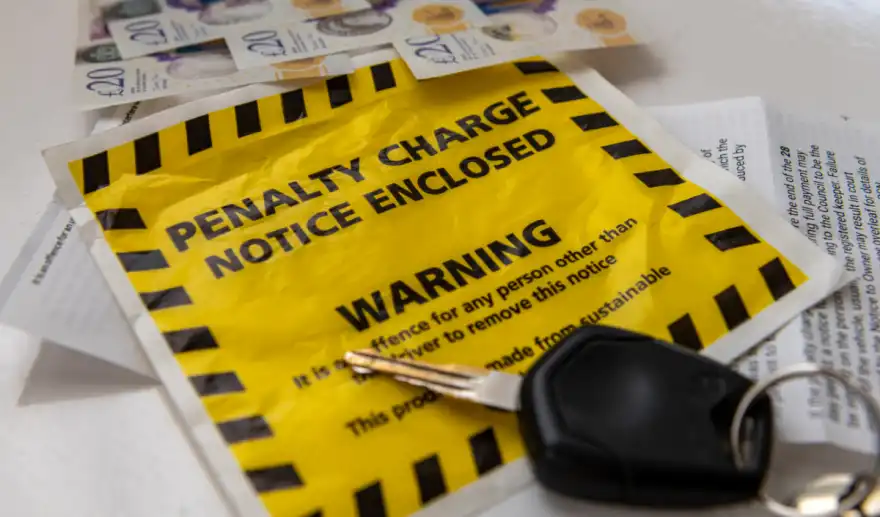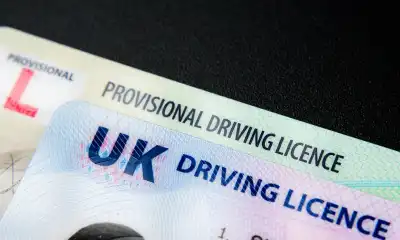
The UK has seen some important shifts in its driving laws this year, with several new rules and regulations that affect drivers, cyclists, and pedestrians. Whether you’re behind the wheel or out for a walk, these changes will impact how we all use the roads in the future. Here’s a roundup of some major driving law changes introduced in 2024:
1. Zero Emission Vehicle (ZEV) Mandate
Introduced in January this year, the Zero Emission Vehicle (ZEV) mandate sets specific targets for car manufacturers to ensure that a percentage of their new sales are fully electric. In 2024, at least 22% of car sales in the UK must be zero-emission vehicles, gradually increasing to 100% by 2035. This measure is a key part of the UK's plan to eliminate carbon emissions from the transport sector, contributing to its goal of achieving net-zero emissions by 2050.
The ZEV mandate has sparked significant controversy and criticism, particularly from car manufacturers. Companies that fail to meet these targets will face heavy financial penalties. The fines are structured as a penalty for every vehicle that does not meet the zero-emission requirement, with a cost of £15,000 per vehicle for each sale that falls short of the mandated target.
Some manufacturers have expressed concern that the targets are too ambitious and could have negative financial impacts on their businesses, especially for those that have yet to fully transition to electric vehicle production. The UK government has argued that the fines will incentivise automakers to invest more heavily in EV technology, but many industry insiders are pushing back, calling for a more gradual implementation and longer transition period.
2. Ban on New Diesel and Petrol Cars from 2030, Hybrids Allowed Until 2035
When the UK first announced plans to ban the sale of new petrol and diesel cars, the ban was set for 2030. However, the previous Conservative government pushed the ban back to 2035 to give manufacturers and consumers more time to adjust to the transition to electric vehicles.
In 2024, after the Labour government took office, they reversed the decision, bringing the ban on new petrol and diesel car sales back to 2030. This move is part of Labour's broader commitment to accelerate the UK’s shift towards cleaner, greener transportation. However, the government has allowed hybrid vehicles to be sold until 2035, giving manufacturers time to further develop and refine electric vehicle technologies. While the decision has been welcomed by environmental groups, it has also raised concerns from the automotive industry, with some fearing that the accelerated timeline may put additional strain on manufacturers and consumers.
3. Changes to the Driving Test Eyesight Requirement
This year the driving test’s eyesight requirement became stricter. The new regulation mandates that drivers must be able to read a number plate from a distance of 20 metres (previously 17.5 metres). This change was implemented to ensure that drivers have adequate vision for road safety, in line with growing concerns about eye-related accidents and the increasing number of older drivers on the roads.
4. Glasgow Introduces Pavement Parking Ban
In September 2024, Glasgow joined Aberdeen and Edinburgh in implementing a pavement parking ban. This new law comes as part of Scotland’s broader initiative to tackle traffic congestion and enhance urban planning.
There are calls for similar legislation to be introduced in England and Wales, as many cities experience the same issues with pavement parking. While some areas in England, such as London, already have restrictions in place, the national rollout of a pavement parking ban is still a topic of ongoing discussion. It is expected that other cities may follow Glasgow’s lead if the initiative proves successful in improving pedestrian safety.
5. Mandatory Speed Limiters for New Cars
Starting in July 2024, all new cars sold in the UK will be required to have Intelligent Speed Assistance (ISA) systems. These systems use GPS and camera technology to monitor speed limits and can either alert the driver or actively intervene to prevent the car from exceeding the speed limit. This regulation is part of a broader EU-wide push for vehicle safety, aimed at reducing accidents and fatalities by enforcing speed limits more effectively.
6. New Offence for Dangerous Cycling
The government introduced a new law in March 2024 that criminalises dangerous cycling. Cyclists who engage in reckless behaviour, such as running red lights, cycling without lights, or causing accidents due to dangerous riding, can now be fined or even face jail time. This new offence aims to create a balance between the safety of cyclists and pedestrians and is seen as an important step in regulating the growing number of cyclists on the roads.
7. Grace Period for Parking Fines in Private Parking Code of Practice
This year, a new rule has been introduced in the Private Parking Code of Practice, offering a 10-minute grace period before parking fines can be issued. The regulation applies to private parking facilities, such as shopping centre car parks and private residential areas, allowing drivers a brief window of time after their ticket expires before a penalty charge notice is enforced. This change aims to reduce unnecessary fines, providing more flexibility for drivers who may have been delayed or caught up in unavoidable circumstances, such as slow service at a shop or an unexpected hold-up.
This update is part of a broader effort to improve fairness and transparency in private parking management. Alongside the grace period, the new Code of Practice also mandates clearer signage and a more transparent appeals process for drivers who feel they have been wrongly fined. While some private parking companies have expressed concerns about the potential financial impact, the overall intent is to make the parking system more reasonable and user-friendly for drivers.
8. UK Government Rules Out Pay-Per-Mile Road Pricing
In this year's Autumn Budget, the UK government officially ruled out the introduction of a pay-per-mile road pricing system. While the idea had been discussed as a way to generate revenue for road maintenance and reduce traffic congestion, concerns over fairness and the potential financial burden on drivers led to the government’s decision to focus on alternative revenue options, such as increasing vehicle taxes.
9. New Vehicle Risk Rating (VRR) to Replace Traditional Insurance Groups
Starting in August 2024, a new system for car insurance pricing was introduced. The Vehicle Risk Rating (VRR) replaces the traditional 1-50 insurance group system with a more detailed risk-based assessment. The VRR takes into account a variety of factors, including safety ratings, environmental impact, and the likelihood of claims. This new system is expected to lower insurance premiums for cars with superior safety features or those with lower environmental impact and provide more accurate pricing for all vehicles.
10. The Automated Vehicles Act
A groundbreaking change came with the Automated Vehicles Act, introduced in May 2024. This legislation marks the UK’s first major step toward fully regulating autonomous vehicles. The act defines the legal framework for the deployment of self-driving cars, establishing rules on insurance, liability, and road safety. Under the act, self-driving cars will be legally allowed on UK roads, provided they meet stringent safety and technological standards. It also sets out the responsibilities of manufacturers, insurers, and drivers, outlining what will happen in the event of an accident or system failure. This is expected to pave the way for the mass adoption of autonomous vehicles in the coming decades.
The changes from this year represent a significant shift towards safer, more sustainable driving in the UK. Whether it’s moving towards electric vehicles, improving road safety with stricter cycling laws, or enhancing parking regulations, the 2024 driving law updates are shaping the future of road use.




